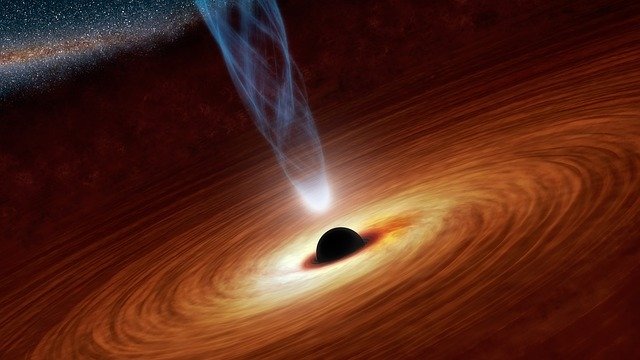- Credit: Pixabay*
When a black hole sucks in the elements of a nearby star, an accretion disk is formed which is heated to very high temperature and high internal pressure.
Here I assume that all atoms pulled in from the star end up colliding with each other within the disk, probably at very high relative velocities. If this wasn't the case, I assume that the disk wouldn't be "glowing hot"?
As a result of these highly energetic encounters, is it possible that nuclear reactions take place within the accretion disk?
Could heavy elements be formed?
Could these heavy elements sometimes be ejected from the disk?
StemQ Notice: This post was originally submitted on StemQ.io, a Q&A application for STEM subjects powered by the Steem blockchain.

This post has been voted on by the SteemSTEM curation team and voting trail in collaboration with @curie.
If you appreciate the work we are doing then consider voting both projects for witness by selecting stem.witness and curie!
For additional information please join us on the SteemSTEM discord and to get to know the rest of the community!
Congratulations @irelandscape! You have completed the following achievement on the Steem blockchain and have been rewarded with new badge(s) :
Click here to view your Board
If you no longer want to receive notifications, reply to this comment with the word
STOPI will answer this over the week-end! There is some interesting novel ideas on this topic (connected to primordial black holes) that deserve to be discussed.
Brilliant, can't wait!
Hi, @irelandscape!
You just got a 2.41% upvote from SteemPlus!
To get higher upvotes, earn more SteemPlus Points (SPP). On your Steemit wallet, check your SPP balance and click on "How to earn SPP?" to find out all the ways to earn.
If you're not using SteemPlus yet, please check our last posts in here to see the many ways in which SteemPlus can improve your Steem experience on Steemit and Busy.